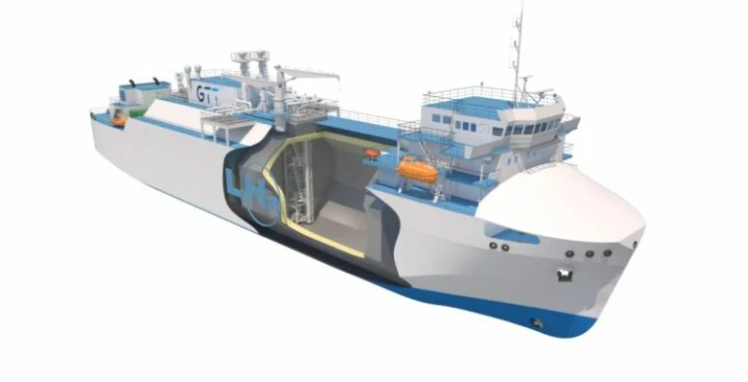
As explained, GTT’s scalable containment system can be adapted to any size of LH2 carrier without major design modifications.
In addition, the company’s cargo handling system design was validated on the basis of ClassNK rules accompanied by a risk analysis.
The systems were developed by GTT as part of its contribution to overcoming the technological challenge of transporting hydrogen in the liquefied form at -253°C.
Philippe Berterottière, Chairman and CEO of GTT, declared: “We are proud to have obtained this new approval in principle from ClassNK, whose in-depth technical and regulatory knowledge, as well as the solid experience in the hydrogen field, demonstrate the relevance of GTT’s technology in this domain. We are convinced that the development of containment systems for the transport of liquid hydrogen is a key element in accelerating the energy transition. GTT’s R&D teams are determined to push back the technological frontiers so that this solution is viable and rapidly available to the maritime transport and energy players.”
Masaki Matsunaga, Corporate Officer and Director of Plan Approval and Technical Solution Division of ClassNK, stated: “ClassNK has issued the AiP for the LH2 cargo containment system and cargo handling system developed by GTT, following a review in accordance with our rules and guidelines dedicated to LH2 transportation as well as verification of the risk analysis results. Anticipating that hydrogen transport will play a significant role in a carbon-free society, we are delighted to participate in GTT’s pioneering initiative through our expertise in safety assessment.”
Earlier this year, GTT teamed up with compatriot energy major TotalEnergies and classification society Bureau Veritas (BV) to develop a large-scale liquid hydrogen carrier. The project will see the three partners working on a 150,000 m3 vessel which will be fitted with GTT’s membrane-type containment system.
Back in 2022, GTT secured two AiPs from classification society DNV for the design of a membrane-type containment system for liquefied hydrogen and for the preliminary concept design of an LH2 carrier. The approvals were part of the agreement with Shell from early 2022.